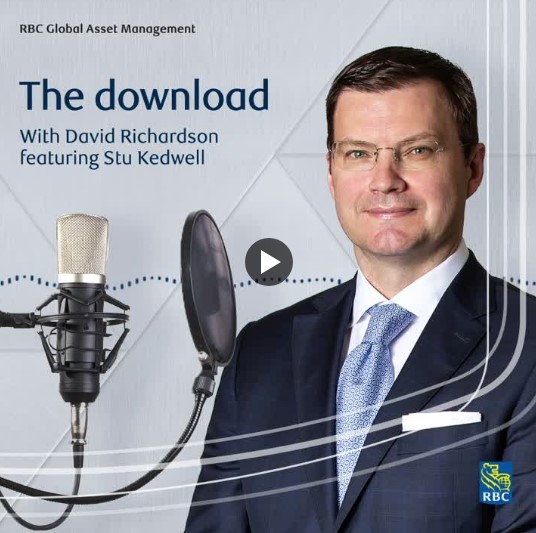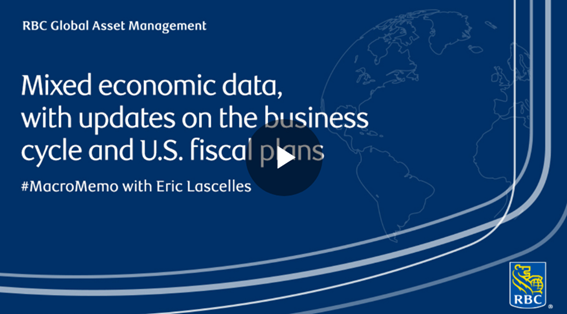In this week’s economic update, we discuss the inflation backdrop, which caught the market off guard this week. We also address the question as to whether this is likely to be short-lived or a longer-term phenomenon.
In addition to our featured economic commentary, we’ve included a podcast and video from RBC Global Asset Management:
- Bringing the big picture into focus – featuring Stu Kedwell
- Mixed economic data, with updates on the business cycle and U.S. fiscal plans – featuring Eric Lascelles
Introducing our newest team member, Rishan Sathasivam! Rishan joined our team earlier this year as our Team Lead, People and Operations. You can read more about the role that Rishan will play on our team in this week’s blog post.
For business owners! In the Federal budget, a number of measures were included to help small businesses that have been hit particularly hard by pandemic-related shutdowns. We’ve included your link to the article below.
Why is backing up files important? Find out why in this week’s Take 2 Minutes article, where the focus is on keeping separate copies of family photos, music, emails, and other important files.
SAVE THE DATE: Advance Care Planning Seminar, June 16. Continuing on the theme of long-term planning, we are looking forward to hosting you at our next online event that will focus solely on Advance Care Planning. Your early RSVP link is below.
As always, we end our weekly blog post with a few good news stories from in and around our community.
Your economic update
Global markets experienced some modest pressure over the past week, but managed to finish the period on a stronger note. More noticeable was the move in volatility, driven by an issue that markets should have been largely prepared for: inflation. Monthly inflation readings in the U.S. came in stronger than expected, and predictably reignited the debate around whether this will be a relatively short-term or longer lasting phenomenon. We discuss this a bit more below.
Coronavirus update
This past week was a good one with respect to the progress seen in Canada. The country’s seven-day average rate of new daily infections stands at 6,700, versus the 7,800 from the same period a week ago. There were encouraging and relatively strong declines in infection trends across a number of provinces, led by British Columbia, Quebec, Ontario, and Alberta. Elsewhere, Saskatchewan and the Northern Territories saw modest declines, while Nova Scotia finally saw a slowing in the rate of growth in new infections. Manitoba did not have a good week as its average new daily infections jumped significantly and it recently reported its highest ever amount of new daily infections. Nevertheless, Canada experienced a relatively broad decline across a number of provinces, which is an encouraging sign that the third wave may now be slowing more meaningfully.
Inflation… Shorter-term or longer lasting?
This past week, the U.S. consumer price index (CPI), representing a basket of consumer goods and services, was released for the month of April. The update suggests prices rose by 4.2 percent versus the same period a year ago, well ahead of estimates and the highest increase in year-over-year price gains since 2008. Excluding food and energy, which can be more volatile, the so-called “core CPI” rose by 3.0 percent, still well above expectations.
There’s reason to believe that these price pressures will continue, at least over the next few months. We are still lapping the year ago period where economies were nearly shut and inflation was particularly weak. These base effects will continue to distort the year-over-year comparisons for a little while longer.
Supply chain issues present another dynamic that has the potential to exacerbate pressures over the intermediate-term. This is particularly true with semiconductors, which are used in everything from microwaves, to computers, mobile phones, cars, and watches. The “chip” industry has been struggling to meet high demand from the manufacturers of these products, and prices have been on the rise as a result. Commodity prices have been increasing too, and there’s reason to believe that trend may continue given a strong housing market, the accelerating electrification of cars, and increasing drive to alternative energy production, among other trends, which is spurring demand for everything from lumber, to copper, and other base metals.
The key question is whether the pressures above will prove to be short lived, or more durable and sustainable in nature. The distortions caused by the onset of the pandemic last year should inevitably fade. Even the supply chain challenges may subside over the next year or two as more manufacturing capacity comes online. The same can be said for the supply of some commodities, as producers may inevitably raise production and expand capacity to take advantage of higher prices, as they often do.
On the employment front, job openings have risen and some businesses have reported difficulties filling roles. However, that may also be distorted to some extent by government aid that has left some unemployed workers less incentivized to hurry back to the job market. The U.S. economy is still a year, if not more, away from reaching full employment. It’s only at that point that we would expect to see the potential for durable wage pressures to surface. In other words, the employment picture does not yet appear to be a meaningful driver of pricing pressures.
Overall, the inflation that investors were anticipating appears to have arrived. We expect the next few months to be noisy, but the bigger test will come later in the year when the year-over-year comparisons should be less distorted and some of the supply chain issues may be less pronounced. We are not convinced that longer-term inflation is upon us, but we acknowledge that the combination of extraordinary fiscal stimulus and extremely accommodative monetary policy could eventually foster such an environment. It is something we expect to continue to monitor as we move through the rest of the year.
Bringing the big picture into focus
 In this episode, Stu Kedwell, Co-Head of North American Equities with RBC Global Asset Management, explains how broad macroeconomic conditions and market trends factor into the individual investment decisions he makes. Stu shares some important considerations portfolio managers think through when choosing which companies to invest in for long-term success.
In this episode, Stu Kedwell, Co-Head of North American Equities with RBC Global Asset Management, explains how broad macroeconomic conditions and market trends factor into the individual investment decisions he makes. Stu shares some important considerations portfolio managers think through when choosing which companies to invest in for long-term success.
Listen to the podcast online: Bringing the big picture into focus [9 minutes, 38 seconds]
Mixed economic data, with updates on the business cycle and U.S. fiscal plansIn this video, Chief Economist Eric Lascelles discusses weak economic figures from April. Though recent lockdown restrictions in Canada have significantly impacted small businesses, he anticipates some future improvements as vaccinations continue. In the United States, he comments on the slow labour market recovery compared to the rest of the U.S. economy. He also shares some thoughts on the business cycle and U.S. fiscal plans. Watch the video or read the transcript online: Mixed economic data, with updates on the business cycle and U.S. fiscal plans |
Introducing Rishan Sathasivam, CPA, CA
Team Lead, People and Operations
We are excited to introduce you to the newest member of the Elinesky Schuett Private Wealth Management team, Rishan Sathasivam. As the Team Lead, People and Operations, Rishan will spearhead the integration of our service initiatives and technology enhancements, and provide strategic leadership for our day-to-day operations. Leaning on his experience as an entrepreneur, Chartered Professional Accountant, and leader in fintech and corporate finance, Rishan will enhance our ability to provide a premier service experience for our clients.
Federal Budget 2021
Four Key Takeaways Every Business Should Know
 In Budget 2021, the federal government announced $101 billion in net new spending over the next three fiscal years. Included were a number of measures to help small businesses that have been hit particularly hard by pandemic-related shutdowns. Funding for tech adoption and training programs should also help small businesses adapt to a post-pandemic economy.You can read some of the key proposals affecting business owners in this online article: Federal Budget 2021 – Four Key Takeaways Every Business Should Know
In Budget 2021, the federal government announced $101 billion in net new spending over the next three fiscal years. Included were a number of measures to help small businesses that have been hit particularly hard by pandemic-related shutdowns. Funding for tech adoption and training programs should also help small businesses adapt to a post-pandemic economy.You can read some of the key proposals affecting business owners in this online article: Federal Budget 2021 – Four Key Takeaways Every Business Should Know
Take 2 Minutes: Backups
 Backing up your devices is easier than you may think. Keeping separate copies of family photos, music, emails, and important files means if one copy goes missing, you haven't lost it forever.
Backing up your devices is easier than you may think. Keeping separate copies of family photos, music, emails, and important files means if one copy goes missing, you haven't lost it forever.
Learn more in this article: Take 2 Minutes: Backups
Community Corner
Each week, we like to end our posts with a few good news stories from in and around the community. We hope that they brighten your day!
- A moving tribute to essential workers (4 photos)
- Guelph & District Multicultural Festival goes virtual next month
- Wedding happens on hospital grounds so mom can watch son get married
- Bon Jovi slated to rock the big screen in Guelph
- Over 80,000 trees to be planted across Wellington County this spring season through Ontario’s Million Tree Program
- Free parks passes this summer through Halton Hills Public Library
As always, we are available to connect with you personally. Please don’t hesitate to contact us at 519-822-2024 or elineskyschuett@rbc.com.



